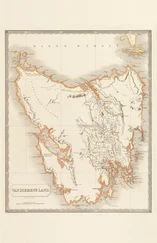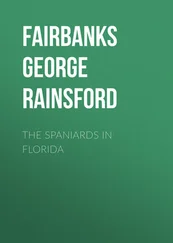Joshua Giddings - The Exiles of Florida
Здесь есть возможность читать онлайн «Joshua Giddings - The Exiles of Florida» — ознакомительный отрывок электронной книги совершенно бесплатно, а после прочтения отрывка купить полную версию. В некоторых случаях можно слушать аудио, скачать через торрент в формате fb2 и присутствует краткое содержание. Жанр: foreign_antique, foreign_prose, на английском языке. Описание произведения, (предисловие) а так же отзывы посетителей доступны на портале библиотеки ЛибКат.
- Название:The Exiles of Florida
- Автор:
- Жанр:
- Год:неизвестен
- ISBN:нет данных
- Рейтинг книги:5 / 5. Голосов: 1
-
Избранное:Добавить в избранное
- Отзывы:
-
Ваша оценка:
- 100
- 1
- 2
- 3
- 4
- 5
The Exiles of Florida: краткое содержание, описание и аннотация
Предлагаем к чтению аннотацию, описание, краткое содержание или предисловие (зависит от того, что написал сам автор книги «The Exiles of Florida»). Если вы не нашли необходимую информацию о книге — напишите в комментариях, мы постараемся отыскать её.
The Exiles of Florida — читать онлайн ознакомительный отрывок
Ниже представлен текст книги, разбитый по страницам. Система сохранения места последней прочитанной страницы, позволяет с удобством читать онлайн бесплатно книгу «The Exiles of Florida», без необходимости каждый раз заново искать на чём Вы остановились. Поставьте закладку, и сможете в любой момент перейти на страницу, на которой закончили чтение.
Интервал:
Закладка:
The Governor of Florida demanded, in the name of “his Most Christian Majesty the king of Spain,” possession of the property thus captured in the fort; denying the right of either our army or navy to invade the territory of Spain, and take and carry away property from its fortifications.
To this claim Sailing-Master Loomis replied, that the property did not belong to the Spanish crown, but to the Exiles, who were in possession of it, from whom it was taken by conquest . This correspondence between his Excellency the Governor of Florida and the Commander of the two gun-boats, was duly transmitted to our Government at Washington, and may now be found in our National Archives. 39 39 Vide Documents before the Committee of Congress appointed to investigate the cause of General Jackson’s invasion of Florida: XVth Congress, 2d Session.
Some twenty-two years subsequent to the capture of this property, and the massacre of those who were in possession of it, a bill was reported in the House of Representatives, 40 40 This bill was reported by Mr. Ingham of Connecticut, Chairman of the Committee on Naval Affairs.
granting five thousand dollars to the officers, marines and sailors who constituted the crews of those gun-boats, as compensation for their gallant services. Whether the honorable Chairman of the Naval Committee who reported the bill, or any member of the House who voted for it, was aware of the true character of the services rendered, is a matter of doubt; but the bill passed without opposition, became a law, and the people of the United States paid that bonus for the perpetration of one of the darkest crimes which stains the history of any civilized nation. 41 41 Vide Statutes enacted at 2d Session, XXVIth Congress. The author was then a member of the House of Representatives, but had not learned to watch the movements of slaveholders and “their allies,” so closely as subsequent experience taught him would be useful.
The official correspondence connected with this massacre was called for by resolution, adopted in the House of Representatives, and was communicated to that body at the second session of the fifteenth Congress. But no action appears to have been proposed in regard to it; nor does it appear that public attention was at that time particularly called to this most wanton sacrifice of human life.
In this massacre, nearly every Exile resident upon the Appalachicola River, including women and children, perished or was reënslaved. Their homes were left desolate; their plantations, and their herds of cattle and horses, became the property of those who first obtained possession of them. Probably one-third of all the Exiles at that time resident in Florida, perished in this massacre, or were reënslaved by Colonel Clinch; yet the atrocious character of the transaction appears to have attracted very little attention at the time. General Jackson was popular as a military officer, and the Administration of Mr. Madison was regarded with general favor. No member of Congress protested against the transaction, or made known its barbarity to the people; while the ablest members taxed their ingenuity, and brought all their rhetoric to bear, in vindication of those concerned in the outrage. 42 42 Vide Speeches of Hon. George Poindexter and others on the Seminole War, in 1819.
While Mr. Clay and others severely condemned the technical invasion of Florida, as an act of hostility toward the King of Spain, they omitted all reference to this wanton massacre of the Exiles: nor have we been able to learn that any member even intimated that the bloody Seminole war of 1816-17 and 18, arose from efforts of our Government to sustain the interests of Slavery; or that our troops were employed to murder women and children because their ancestors had once been held in bondage, and to seize and carry back to toil and suffering those who escaped death in that barbarous massacre. The officers of Government, and historians of that day, appear to have avoided all reference to the fact, that the people thus murdered had been far longer in the wilderness than were the children of Israel; that they were contending for that Liberty which is the rightful inheritance of every human being. Indeed, more than twenty years elapsed after this massacre, before a distinguished Philanthropist gave to the public the first intimation that such a people as the Exiles had existed. 43 43 Hon. William Jay, of New York, published his Views of the action of the Federal Government in 1887.
CHAPTER IV.
GENERAL HOSTILITIES
The Troops along the Florida frontier become active – The Exiles on Suwanee and Withlacoochee prepare for War – General Gaines’s representation of their numbers – Depredations committed during the Spring and Summer of 1817 – Massacre of Lieutenant Scott and his party – Its Effect upon the Country – Congress not consulted as to this War – General Gaines authorized to Invade Florida – General Jackson ordered to the Field – Mr. Monroe assumes the Duties of President – His Cabinet – Character of Congress – Public Sentiment in regard to discussion of Subjects connected with Slavery – General Jackson concentrates his Army at Fort Scott – Proceeds to Mickasukie – Battle – Destruction of the Town – Marches to St. Marks – Indian Chiefs decoyed on board a Vessel – Hanged by order of General Jackson – The Army moves upon Suwanee – Its Situation – Exiles prepare for a decisive Battle – Severe Conflict – General Jackson takes the Town – Captures Indian Women and Children – Burns the Villages of that region – Returns to Pensacola – Capture and Trial of Arbuthnot and Ambrister – Their Execution – Invasion of Florida condemned by some of our Statesmen, and vindicated by others.
The nation having been precipitated into war (1816), the Officers of Government, and the army, at once became active in carrying it on. Orders were sent to General Gaines, exhorting him to vigilance, caution and promptitude. He was on the southern frontier of Georgia, where it was naturally supposed the first blow, in retaliation for the massacre of Blount’s Fort, would fall. His scouts were constantly on the alert, his outposts strengthened, and his troops kept in readiness for action.
The Seminole Indians had lost some thirty men, who had intermarried with the Exiles, and were in the fort at the time of the massacre. They entertain the opinion that the souls of their murdered friends are never at rest while their blood remains unavenged; nor could it be supposed that the Exiles would feel no desire to visit retributive justice upon the murderers of their friends. Long did this desire continue, in the minds of the surviving Exiles, until, many years subsequently, their vengeance was satiated, their hands were stained, and their garments saturated, in the blood of our troops.
The surviving Exiles had their principal remaining settlements upon the Suwanee and Withlacoochee rivers, and in the Mickasukie towns. These settlements were on fertile lands, and were now relied upon to furnish provisions for their support during hostilities. Savages are usually impetuous; but the Exiles were more deliberate. Colonel Clinch had returned to Georgia; Sailing-Master Loomis was at Mobile Bay, and no circumstances demanded immediate action. They gathered their crops, obtained arms and ammunition from British and Spanish merchants, and made every preparation for hostilities. During the summer and autumn of 1816, General Gaines reported slight depredations on the frontiers of Georgia, but in February, 1817, he reported that larger bodies of Indians were collecting in some of their villages; and in one of his letters he stated that seven hundred negroes were collected at Suwanee, and were being daily drilled to the use of arms. This number of fighting men would indicate a larger population of Exiles than is warranted by subsequent information.
Читать дальшеИнтервал:
Закладка:
Похожие книги на «The Exiles of Florida»
Представляем Вашему вниманию похожие книги на «The Exiles of Florida» списком для выбора. Мы отобрали схожую по названию и смыслу литературу в надежде предоставить читателям больше вариантов отыскать новые, интересные, ещё непрочитанные произведения.
Обсуждение, отзывы о книге «The Exiles of Florida» и просто собственные мнения читателей. Оставьте ваши комментарии, напишите, что Вы думаете о произведении, его смысле или главных героях. Укажите что конкретно понравилось, а что нет, и почему Вы так считаете.












